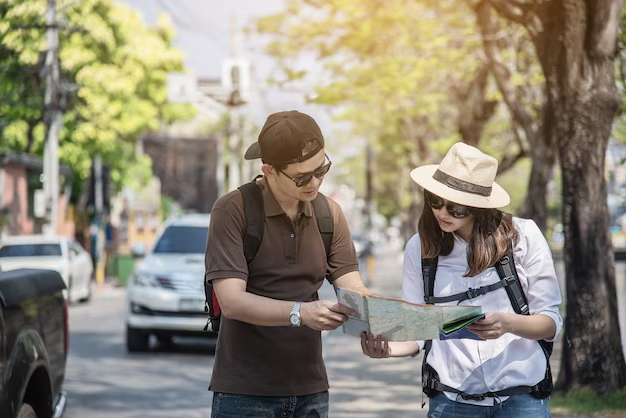Traveling is more than just exploring new places; it’s about experiencing the essence of the culture, traditions, and way of life of the destinations you visit. Engaging with local culture offers a deeper connection to the places you travel to, enriching your journey and creating meaningful memories. In this article, we’ll explore how to experience local culture through travel and why it’s an essential part of a fulfilling trip.
Why Experience Local Culture?
Local culture is what gives a place its unique identity. It includes the traditions, food, language, art, music, and even the everyday habits of its people. Immersing yourself in these cultural aspects not only makes your trip more interesting but also allows you to learn and grow as a traveler. Here’s why engaging with local culture is so rewarding:
1. Deeper Understanding of a Destination
When you experience the local culture, you get a deeper understanding of the history and values that shape the place. It allows you to see beyond the typical tourist attractions and gain insight into the soul of the destination.
2. Meaningful Interactions
Engaging with locals offers the opportunity for genuine, personal interactions. These connections can be more enriching than simply visiting a monument or a popular site. You can learn about people’s lives, their customs, and hear personal stories that you wouldn’t otherwise experience.
3. Creating Lasting Memories
Cultural experiences—like learning to cook a traditional dish or participating in a local festival—often create the most lasting memories. These are the moments that stay with you long after you’ve left the destination.
4. Supporting Local Economies
By engaging with local culture—whether through staying in locally owned accommodations, purchasing handcrafted goods, or eating at local restaurants—you’re contributing to the local economy and supporting sustainable tourism.
Ways to Experience Local Culture Through Travel

Here are some effective ways to immerse yourself in the local culture during your travels:
1. Explore Local Markets and Food
One of the best ways to experience a destination’s culture is through its food. Visit local markets, street vendors, or traditional restaurants to try authentic dishes. Take a food tour to learn about local ingredients and cooking methods. Food is often a reflection of a place’s history, climate, and customs, making it an excellent way to engage with the culture.
2. Participate in Local Festivals and Events
Local festivals are a great way to see how a community celebrates its heritage. Whether it’s a religious celebration, a harvest festival, or a cultural event, participating in these gatherings allows you to experience the local customs, music, dance, and rituals firsthand.
3. Learn the Language
Learning a few words or phrases in the local language can open doors to deeper interactions. Locals appreciate when visitors make the effort to speak their language, and it can lead to richer conversations and experiences.
4. Stay with Locals
Staying in locally owned accommodations, like homestays or small guesthouses, allows you to interact with locals on a more personal level. You may also get insights into the local way of life, customs, and hidden spots that aren’t mentioned in travel guides.
5. Support Local Arts and Crafts
Visiting local galleries, museums, and artisan workshops can offer insight into the artistic traditions of a destination. You can also support local artists by purchasing handmade crafts or art that represents the culture you’re visiting.
6. Take Part in Traditional Activities
Whether it’s learning a traditional dance, participating in a pottery class, or hiking with a local guide, engaging in cultural activities enriches your understanding of the destination. These activities often provide insights into the skills, crafts, and traditions that are passed down through generations.
7. Be Respectful of Local Customs
Respecting local customs and traditions is crucial when experiencing a new culture. Research cultural norms before traveling, such as appropriate dress codes, greetings, and behaviors, to ensure you are respectful of the community you are visiting.
Conclusion
Experiencing local culture through travel is one of the most rewarding aspects of exploring new places. By engaging with the people, food, art, and traditions of a destination, you gain a deeper appreciation for its uniqueness. Not only will you create lasting memories, but you will also support sustainable tourism and foster meaningful connections with the locals. So, the next time you travel, make it a point to immerse yourself in the culture of the place—you won’t regret it.
FAQs
Q. Why is it important to experience local culture while traveling?
Experiencing local culture helps you gain a deeper understanding of the destination, creates meaningful interactions with locals, and fosters lasting memories. It also contributes to sustainable tourism and supports local economies.
Q. How can I immerse myself in a new culture while traveling?
You can immerse yourself in a new culture by exploring local food, participating in festivals, learning the language, staying with locals, and supporting local arts and crafts. Engaging in traditional activities is also a great way to experience culture.
Q. What are some cultural activities to do when traveling?
Some cultural activities include cooking classes, traditional dance lessons, visiting local museums and galleries, attending festivals, hiking with local guides, and learning about local history and crafts.
Q. How can I be respectful of local culture?
Research the cultural norms of your destination before you travel, such as appropriate dress codes, greetings, and social behaviors. Being mindful of these customs helps ensure you are respectful and welcomed by the local community.
Q. How does experiencing local culture benefit the local community?
By engaging with local culture—whether through food, activities, or purchasing goods—you contribute to the local economy and support sustainable tourism. It also helps preserve cultural traditions and encourages authentic, meaningful interactions.
